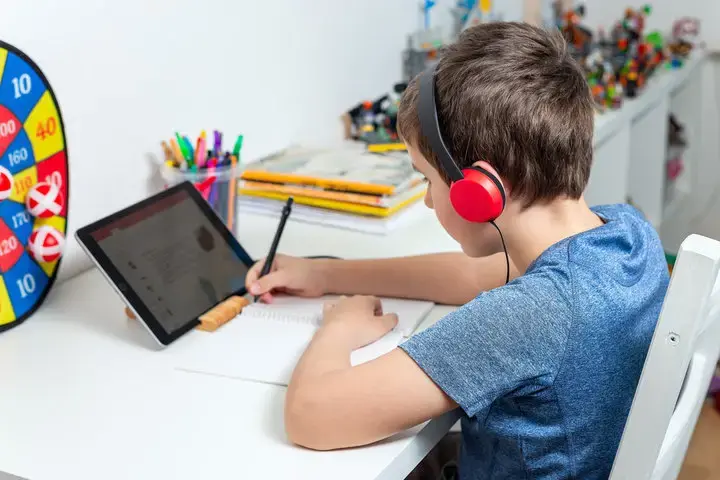In this edition of Ask SEND EDventures, we answer your questions on supporting children with Tourette’s syndrome, significant processing delays, and juvenile arthritis, as well as the challenges of socialising when your child travels to school via local authority-provided school transport and the impact of SEND on siblings. Our answers provide practical strategies, school-based interventions, and signposts to trusted UK charities that offer additional support.
Q: My son travels to school using local authority-provided school transport, so I don’t get to see other parents at drop-off and pick-up like I would at a mainstream school. I feel disconnected and struggle to arrange playdates. How can I build a support network?
A: It’s understandable to feel isolated when you’re not part of the usual school gate conversations. Many parents of children with  SEND find that online communities, support groups, and SEND-friendly activities help build connections. Contact the school to see if they have a SEND parent network, coffee mornings, or a WhatsApp group for parents to stay in touch. You could also check if local charities such as Contact or Scope run meet-ups for parents. SEND EDventures is another great space to connect with other parents facing similar challenges. Join our community discussions to share experiences and arrange meet-ups. For playdates, consider hosting at home or meeting at a neutral, sensory-friendly setting (for example, a soft play centre) where children can interact in a relaxed way.
SEND find that online communities, support groups, and SEND-friendly activities help build connections. Contact the school to see if they have a SEND parent network, coffee mornings, or a WhatsApp group for parents to stay in touch. You could also check if local charities such as Contact or Scope run meet-ups for parents. SEND EDventures is another great space to connect with other parents facing similar challenges. Join our community discussions to share experiences and arrange meet-ups. For playdates, consider hosting at home or meeting at a neutral, sensory-friendly setting (for example, a soft play centre) where children can interact in a relaxed way.
Q: Our daughter has juvenile arthritis, and her energy levels fluctuate daily. Some days she’s fine, but on others, she struggles to get out of bed. How can we manage school attendance and learning without overwhelming her?
 A: Managing a fluctuating condition requires a flexible, child-centred approach. A reduced timetable or hybrid learning (a mix of in-school and at-home education) can help balance workload and fatigue. Speak with the school about an Individual Healthcare Plan (IHP) and access to rest breaks or a quiet area when she needs it. Technology such as dictation software or voice-to-text apps can support her on days when writing is painful. Versus Arthritis offers specialist advice for parents of children with arthritis, including guidance on accessing education support.
A: Managing a fluctuating condition requires a flexible, child-centred approach. A reduced timetable or hybrid learning (a mix of in-school and at-home education) can help balance workload and fatigue. Speak with the school about an Individual Healthcare Plan (IHP) and access to rest breaks or a quiet area when she needs it. Technology such as dictation software or voice-to-text apps can support her on days when writing is painful. Versus Arthritis offers specialist advice for parents of children with arthritis, including guidance on accessing education support.
Q: How can we support our daughter, who has significant processing delays and takes longer than her classmates to finish tasks, as she’s beginning to feel frustrated and embarrassed?
 A: Processing delays can impact comprehension, written work, and verbal responses, often leading to frustration when a child feels they can’t keep up. Schools can support by allowing extra time for assignments and tests, breaking tasks into shorter steps, and using visual schedules to aid focus. Encourage her to self-advocate with phrases like “I need more time” or “Can you repeat that?” without embarrassment. At home, reinforce a growth mindset by celebrating progress rather than speed. The British Dyslexia Association and IPSEA (Independent Provider of Special Education Advice) offer guidance on requesting adjustments for processing difficulties.
A: Processing delays can impact comprehension, written work, and verbal responses, often leading to frustration when a child feels they can’t keep up. Schools can support by allowing extra time for assignments and tests, breaking tasks into shorter steps, and using visual schedules to aid focus. Encourage her to self-advocate with phrases like “I need more time” or “Can you repeat that?” without embarrassment. At home, reinforce a growth mindset by celebrating progress rather than speed. The British Dyslexia Association and IPSEA (Independent Provider of Special Education Advice) offer guidance on requesting adjustments for processing difficulties.
Q: My teenage son has Tourette’s syndrome, and he’s becoming more self-conscious about his tics, especially when meeting new people. How can I support him in building confidence?
A: Adolescence can be a tough time for young people with Tourette’s syndrome, especially as they become more aware of how others perceive them. Encourage self-advocacy—he might explain his tics to friends or teachers in a way that feels comfortable. Peer support (in person or online) through Tourettes Action can reduce isolation. Schools should offer exam arrangements (for example, a separate room) if tics affect concentration. Reassure him that acceptance and stress-management strategies often reduce tic intensity, so supporting emotional well-being is as important as practical adjustments.

Q: My younger child is struggling with their sibling’s SEND needs. They often feel overlooked and say things like, “You always have time for them, but not me.” How can we support them?
 A: Siblings of children with SEND can sometimes feel overshadowed, particularly if they see their brother or sister receiving extra attention and support. Acknowledge their feelings and set aside regular one-on-one time—even a short walk, a shared story, or a simple weekend activity helps. Encourage open conversations where they can express frustration without guilt. Resources for siblings, such as Sibs, offer practical tips and peer networks. Where possible, involve them in a positive role (that doesn’t feel like a burden) and celebrate their strengths and achievements.
A: Siblings of children with SEND can sometimes feel overshadowed, particularly if they see their brother or sister receiving extra attention and support. Acknowledge their feelings and set aside regular one-on-one time—even a short walk, a shared story, or a simple weekend activity helps. Encourage open conversations where they can express frustration without guilt. Resources for siblings, such as Sibs, offer practical tips and peer networks. Where possible, involve them in a positive role (that doesn’t feel like a burden) and celebrate their strengths and achievements.
Disclaimer: The information in this article is provided for general interest and should not be considered medical, therapeutic or educational advice. Families are encouraged to seek support from qualified professionals regarding individual needs or concerns.






